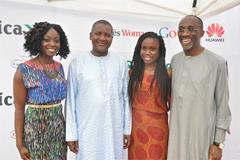With presidential election scheduled to take place in Guinea in early October this year, it is important to assess the level of Guinea’s preparedness on the subject and how it plans to contain the plausible hullabaloos that could arise out of the exercise. This assessment is critical given the fact that the necessary conditions that permit free and fair elections don’t exist in Guinea. An astute analysis of the country’s current political atmosphere shows that the upcoming polls would be held on a “death-and-life” basis. The opposition is ever ready to use any means and employ any strategies in order to claim victory in the upcoming ballot. In fact, Cellou Dalein Diallo, Guinea’s main opposition figure was some few weeks ago in Brussel to solicit the European Union’s active involvement in the upcoming polls – most certainly because he has no trust in the Election Management Bodies (EMBs).
One of the richest countries not only in Africa but on the entire planet, in terms of natural resources may suffer from yet another sever political crisis if preventive measures are not put in place. President Alpha Condé remains a threat to a successful election in Guinea; his increasing political oppression of political opponents remains a matter of concern. He is believed to be taking steps to subvert the Dalein-Dadis alliance with the parochial aim of sticking to power. Pro-opposition media reports suggest that the presidential camp is undertaking some fraudulent maneuvers in pro-opposition electoral areas such Guinée-Forestiére, Fouta, Haute-Guinée among other areas in order to disadvantage opposition parties, notably UFDG, UFC, FPDD.
The coming together of former junta leader Dadis Camara and main opposition leader Cellou Dalein Diallo is also another challenge for peaceful elections in Guinea. Negotiations between the government and the opposition are at a halt, exposing the country to severe political instability. However, there is a way out!
The African Union (AU) and other partners (International Community) ought to step up their its game and for once in Africa’s history play a commanding role in preventing a political havoc. The famous panafrican union ought to abort its “doctor-after-death” syndrome. The AU is advised to set-up a national platform to discuss pending issues pertaining to elections, especially the following:
– Organise local-level elections before the presidential ballot; In effect, the presidential election should take place in December.
– Clean-up the electoral roll to give it more credibility,
– Re-demarcate the map of constituencies in a fair and just manner;
– Dissolve the current Independent National Electoral Commission (INEC) and set-up a new framework – a technical one for that matter. The current INEC is technically weak and politically partisan;
– Strengthen the Constitutional Court in order for it to play an impartial and imposing role in settling electoral disputes as stipulates article 93 of the Guinean Constitution;
– Review Guinea’s electoral code and the role of the Ministry of Interior in election-related issues.
We have a chance to save Guinea! The time to act is now! Isidore Kpotufe (@freeisidore) is Development Activist and Director of IMANI Francophone (imanifrancophone.org), the francophone wing of Ghana-based think tank IMANI.



